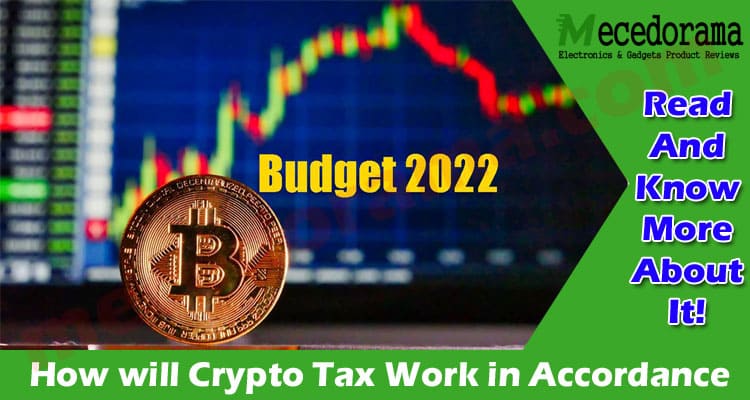How will Crypto Tax Work in Accordance: The 2022-23 budget is out in the open. Two features have captured everyone’s attention. One is the proposed issuance of a digital rupee. They call it CBDC (Central Bank Digital Currency). The other is 30% taxation on virtual assets.
However, does everyone understand what all this means?
It is doubtful! Only seasoned traders may comprehend everything. Beginners/novices in the digital currency world are bound to be confused! Here are some clarifications that may help you understand everything.
Enforcement of Crypto/Virtual Digital Asset Tax
The Indian Government will enforce this tax from April 1, 2022, onwards. It is surchargeable, if your income goes beyond a certain limit.
You may expect all the details in writing, after the Parliament passes the budget. This will enable you to have greater comprehension about the diverse clauses.
Virtual Digital Assets
The taxation is for those possessing/handling virtual digital assets.
According to the Indian Finance Ministry, such assets refer to –
- Information/a token/a code/a number that comes into being through cryptographic methods.
- Something, whose financial value is digital in nature.
- Something that may be traded/transferred/stored electronically.
Businesses/traders/investors could transfer/store/trade digital currencies. They can make use of https://bitcoin-profitapp.com/ for this. Obviously, every transaction would go through electronically.
The Indian budget aims to tax both, exchange, and sale of virtual assets. Exchange refers to a deal that goes through a cryptocurrency wallet. It need not strictly move through a cryptocurrency exchange. To illustrate, let us suppose that A owns a Bitcoin, and B owns an Ethereum coin. Both exchange these coins. This is a taxable transfer.
The term, sale, refers to using virtual assets or cryptocurrencies, as you would use ‘live’ currency for any monetary transaction.
NFTs
They stand for non-fungible tokens. They are unique digital tokens. Cryptographic methods come into play for developing them. They are useful for different purposes.
To illustrate, they act as representations for physical assets. Such assets could be artworks, real estate, video games, audio-video, etc. You may even utilize them for representing property rights or individuals’ identities. In other words, you may use virtual-world NFTs to conduct deals related to tangible assets in the real world. People refer to the process as tokenizing.
You may find NFTs on a blockchain. You need not opt for the services of a third-party/intermediary. As a result, transactions become simpler to handle. New marketplaces for tokenizing may come into being too.
Every NFT undergoes encryption, including the artist’s signature. There is no possibility of replication. Therefore, you need never fear fraud. Whatever NFTs you own, they are genuinely yours. No one can dispute your ownership of them.
One-Percent TDS
TDS stands for tax deducted at source. There will be 1% TDS levied on crypto taxation.
It is necessary, for the Finance Ministry must keep track of people possessing and trading in virtual assets. These assets include cryptocurrencies and NFTs. Otherwise, skipping of taxation or frauds can take place with no fear of being caught.
Every cryptocurrency exchange will take charge of TDS. It will transfer the collections to the concerned authorities.
Non-Allowance of Set-Offs
Your digital currencies may fetch gains at times. You may incur losses at others. Whatever is the case, you are not allowed any set-offs. You may not adjust your profits/losses with your other income gains/losses. It is not permissible during 2022-23.
Furthermore, you may not carry forward your losses, if any, into 2023-24. Therefore, recouping of losses is rather an impossibility.
However, the Indian Government is permitting a special deduction. It is the cost of acquisition. For instance, you may have purchased digital currencies worth a lakh. Later, you may have sold it for INR 1.5 lakhs. You will be taxed on the excess amount (INR 50,000) alone.
Taxation on Self-Transfers and Gifts
Maybe, you wish to transfer coins from one digital wallet to another. Alternatively, you may initiate a transfer from a cryptocurrency exchange to your digital wallet. In either case, there will be no taxation. You are the owner of the wallet and the investment. There is no third-party involved.
Gifting virtual digital assets are liable for taxation. If the presentations are to your spouse and children, you will not have to pay tax. They are your close relatives. However, sending cryptocurrencies to people outside your family, will incur taxation.
Also Read – Crypto Guards Game (Dec 2021) Get The Recent Updates!


